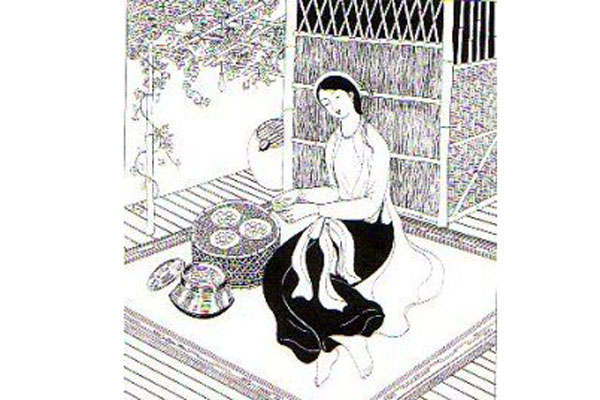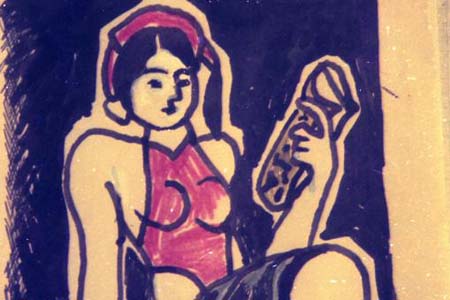Ho Xuan Huong denies the male's superiority consecrated by Confucian ethics. She complains of the fate of unlucky women.
A lonely voice, unique in feudal literature, she rises with bitterness against concubinage.
To share a husband with another... what a life!
The one sleeps under the covers, well tucked in the other freezes.
By chance he comes across you in the dark, once or twice a month... nothing!
You hang on hoping to get your share, but the rice is poor and underdone.
You work like a drudge, save that you get no pay.
And had I known it would be like this
Willingly would I have stayed alone just as I was before,

In reading this poem, we are sure to think of this "ca dao" which is almost like a reply:
How unhappy to be a concubine
Transplanting
Tilling
And at night
No husband,
Quite alone,
Sleeping without a mat
In the biting cold.
“-Eh, you, the second one."
The first wife cries out,
"As early as daybreak
Boil the bran,
Peel potatoes
Chop duckweeds"
Oh, my dear parent,
Am I thus condemned?
Day after day
Because of your poverty?
Ho Xuan Huong also defends unmarried mothers while the society of her time condemned all extra-legal unions and qualified a pregnancy which had not been legitimized as a 'criminal pregnancy' (The unmarried mother, like the adulterous woman, was subjected to cruel punishments).
Her pleading is both ironical and sorrowful:
One moment of complaisance only and I’ve got into a mess!
Oh! My beloved one, do you feel my pains?
Heaven has no sooner given me the sign of destiny
Than a stroke comes to bar the willow trunk!
All your life, you’ll bear the burden of wrongdoing!
I accept to carry the fruit of our love!
I care little what people say about us
Cautious or not, I have my own wisdom making light of criticism.
The poet brings in an unequivocal verdict: the responsibility of the "wrongdoing", that is going to stain all the woman's life, devolves on the man.



